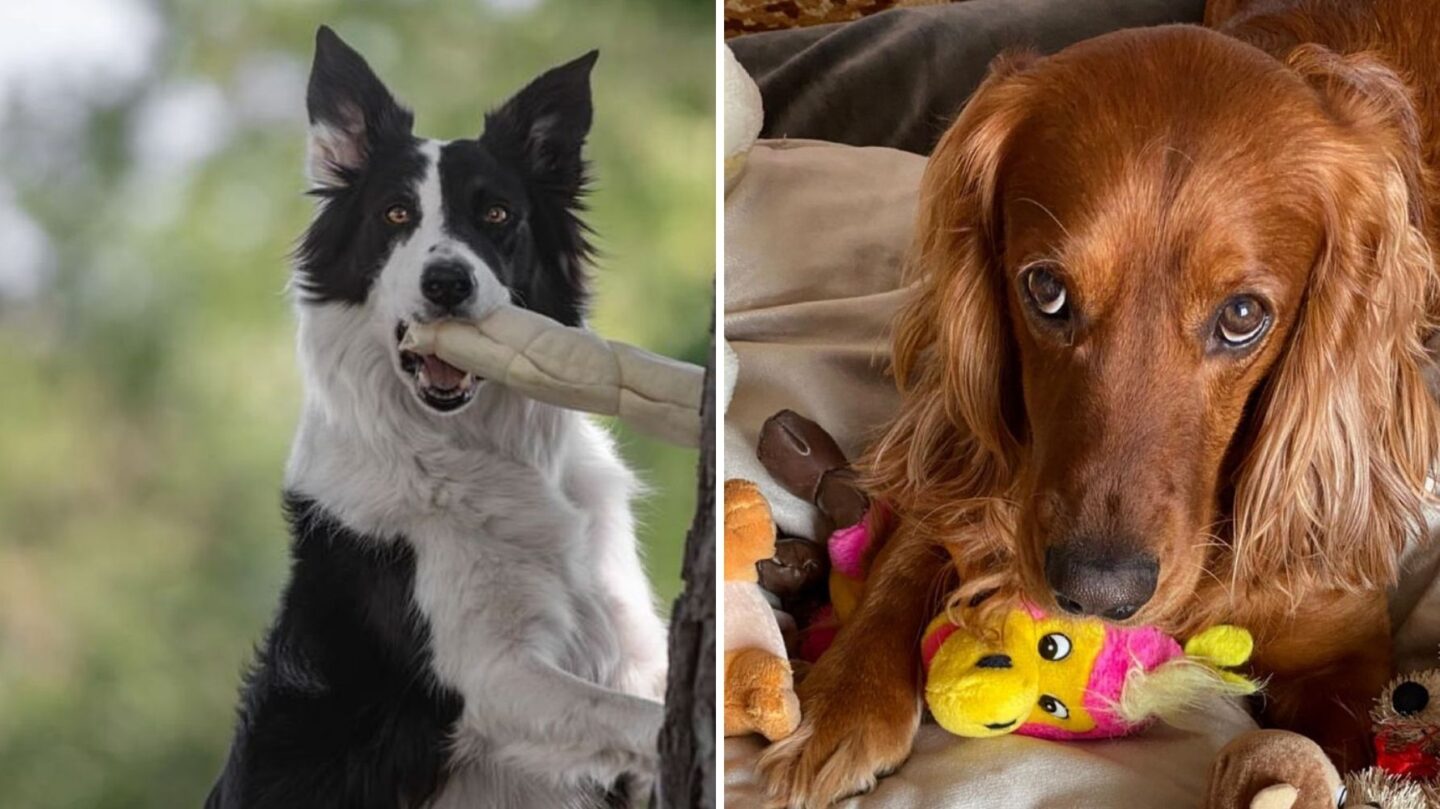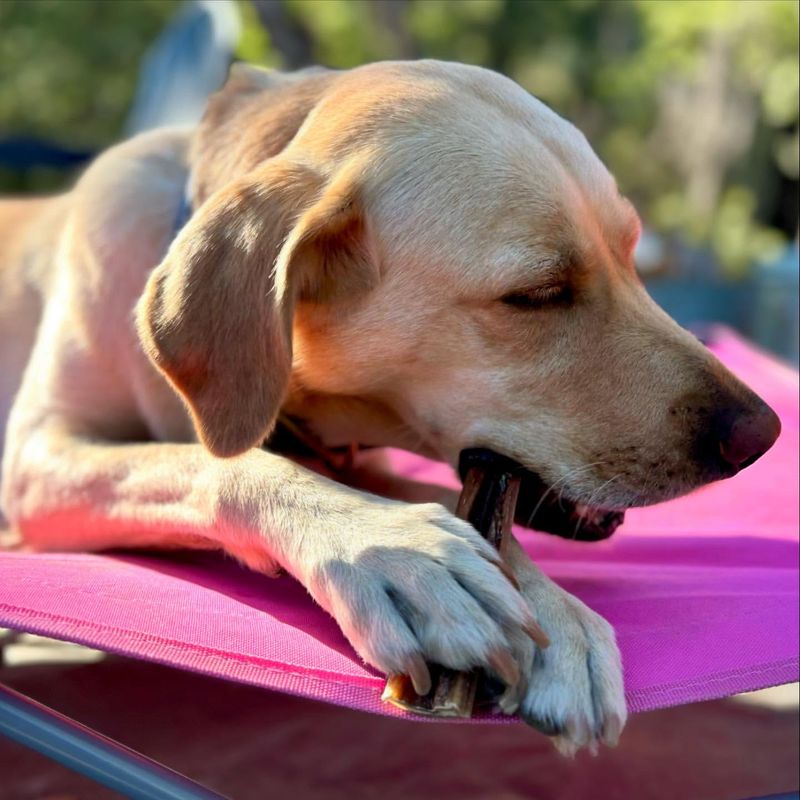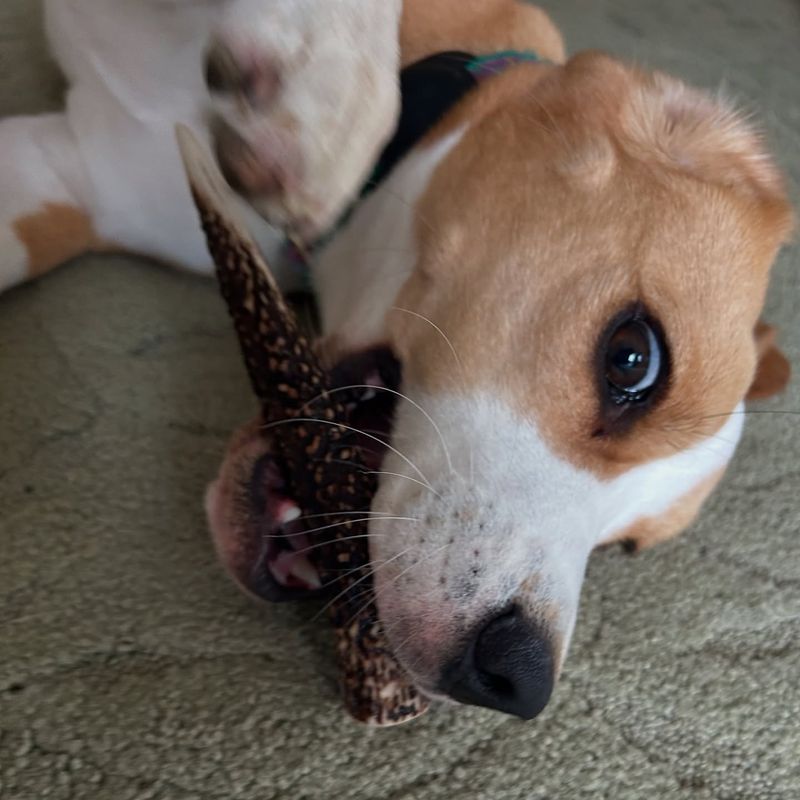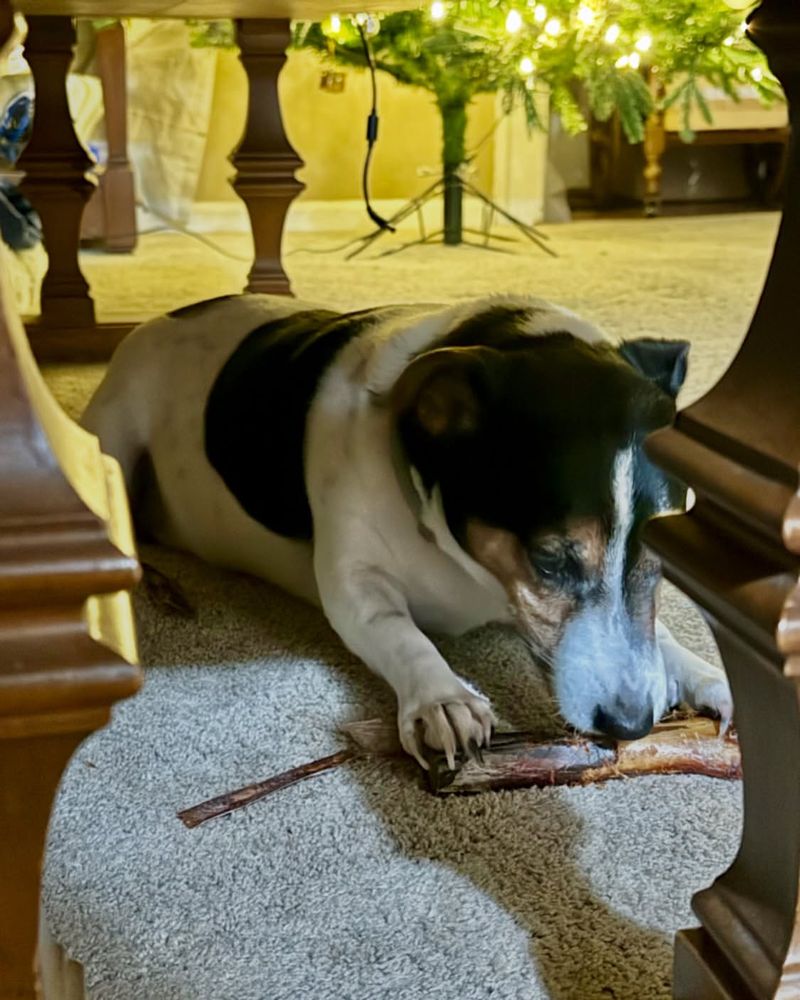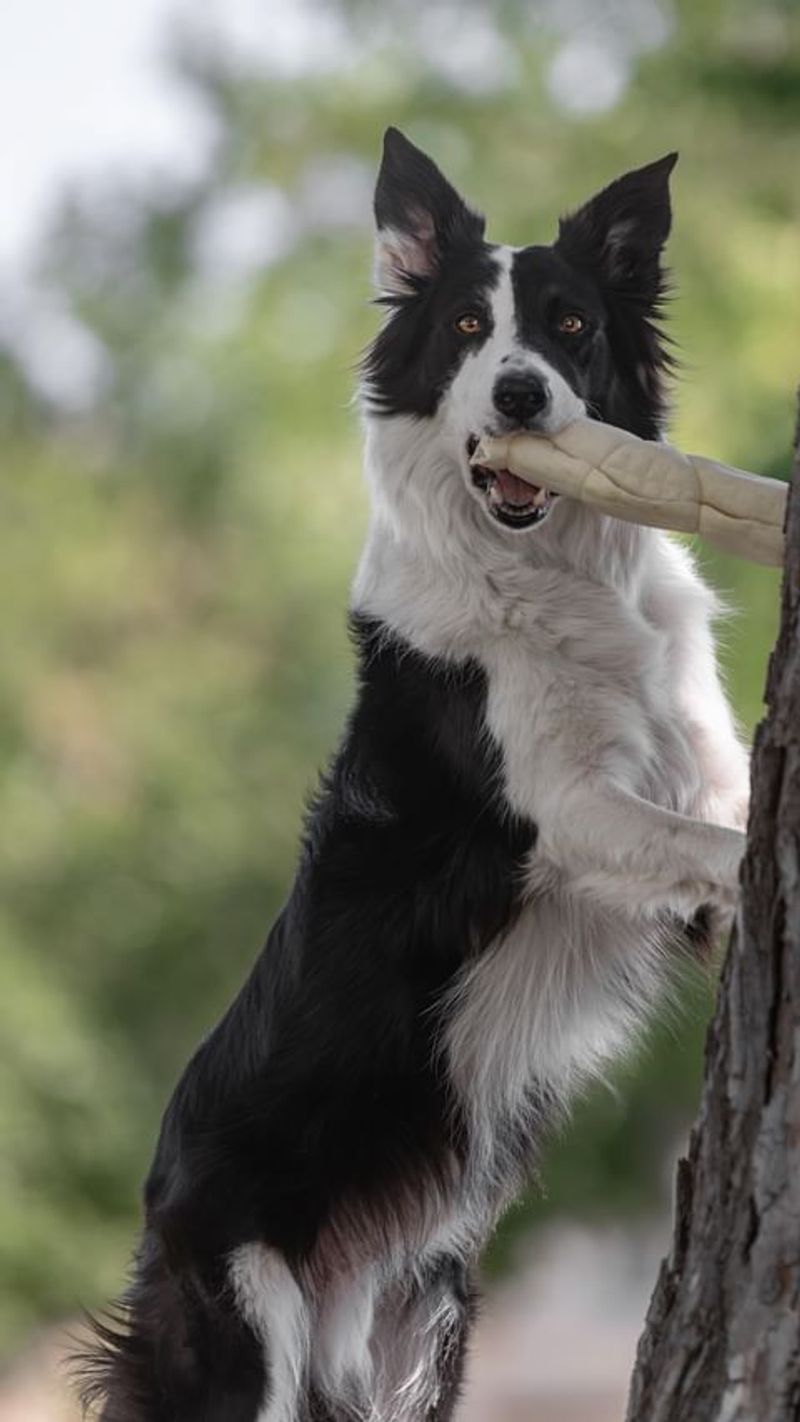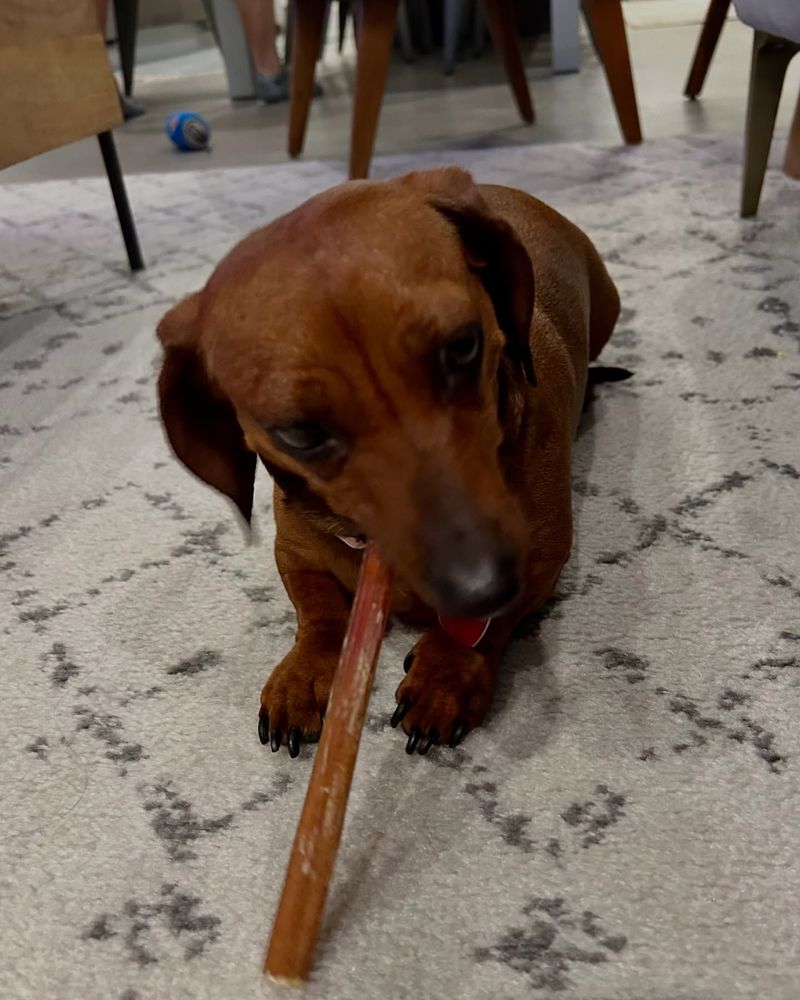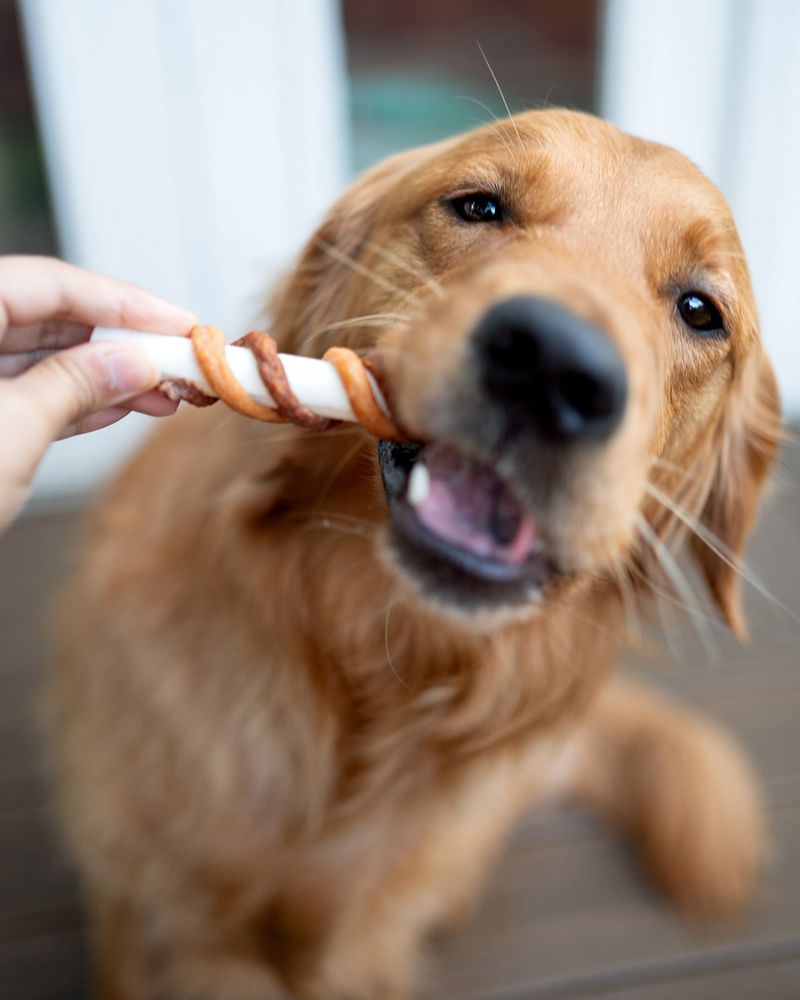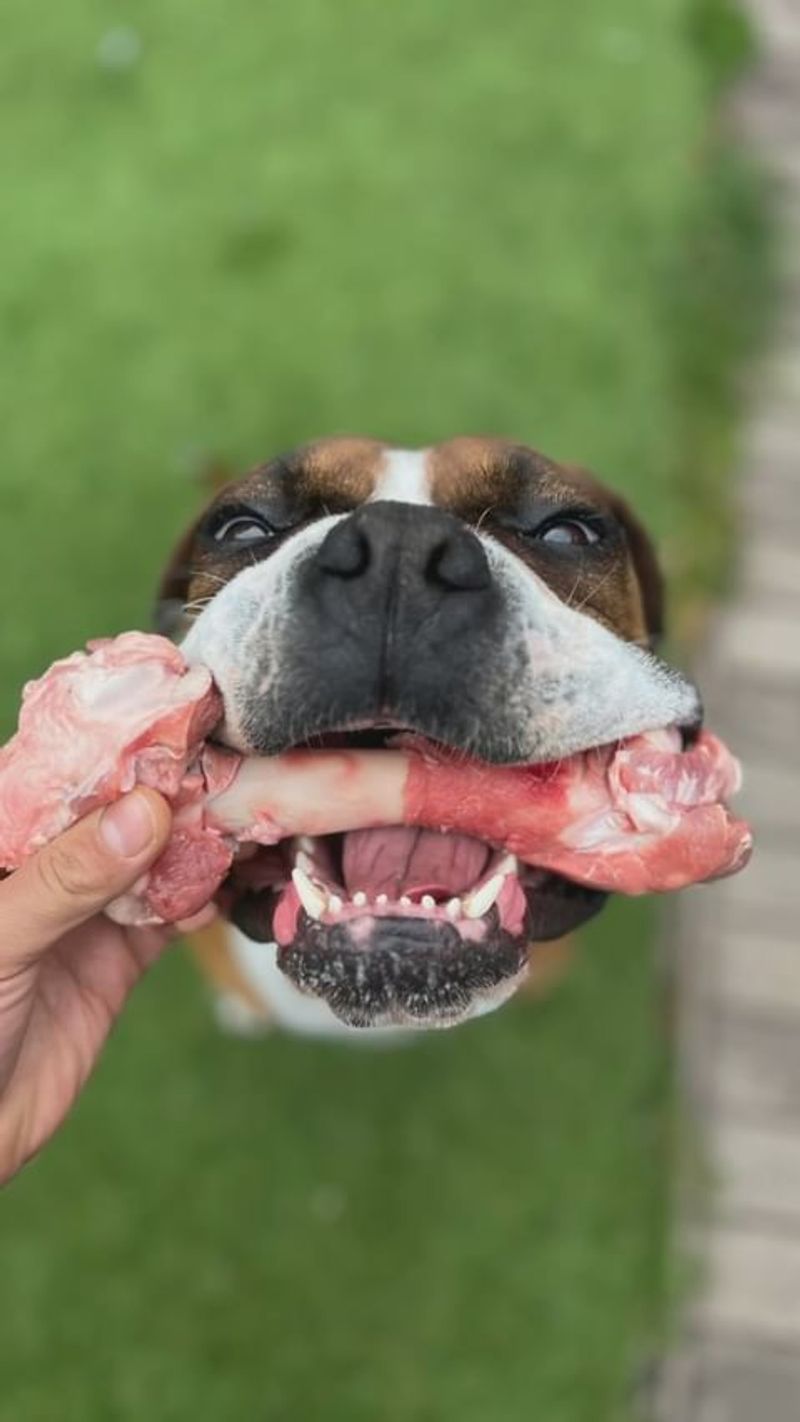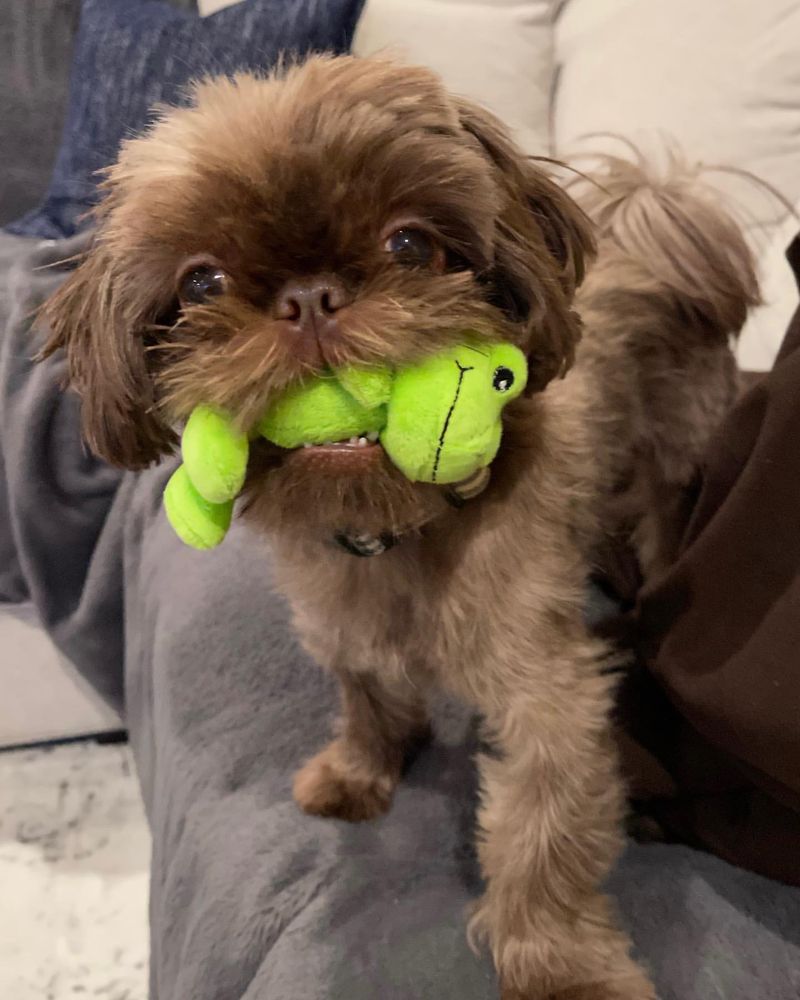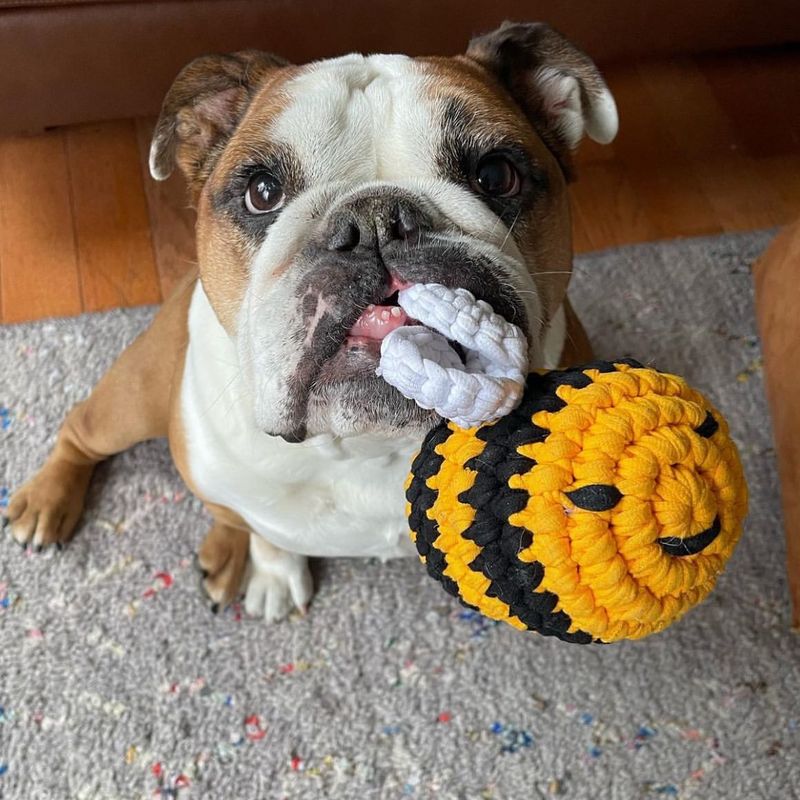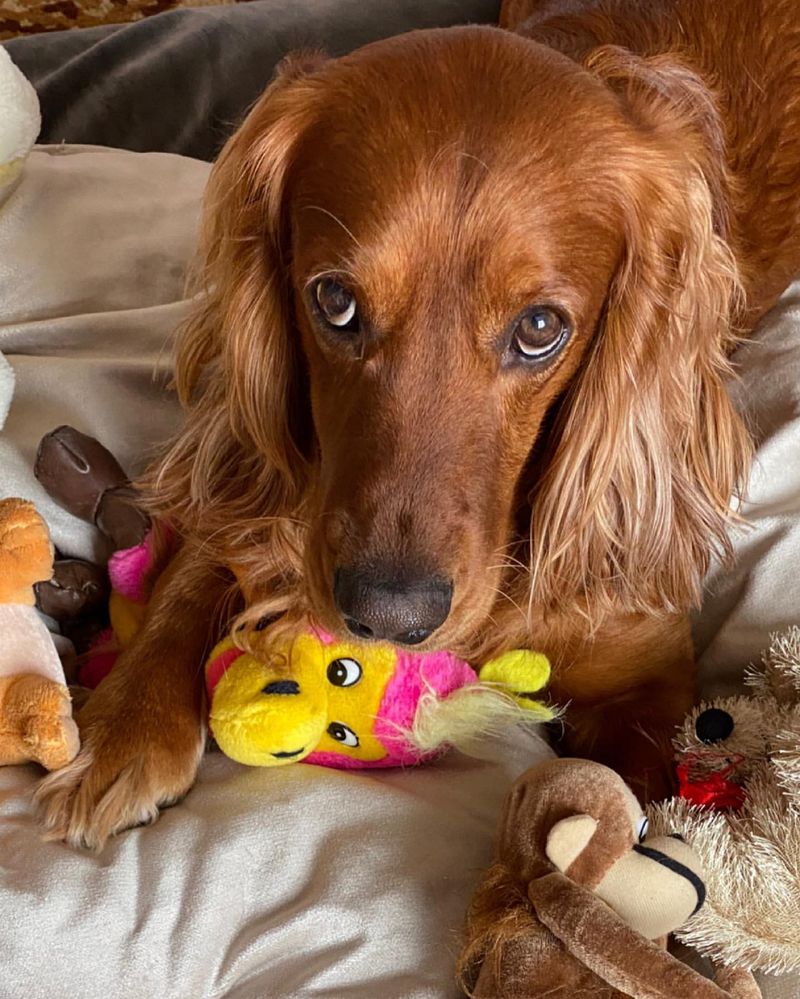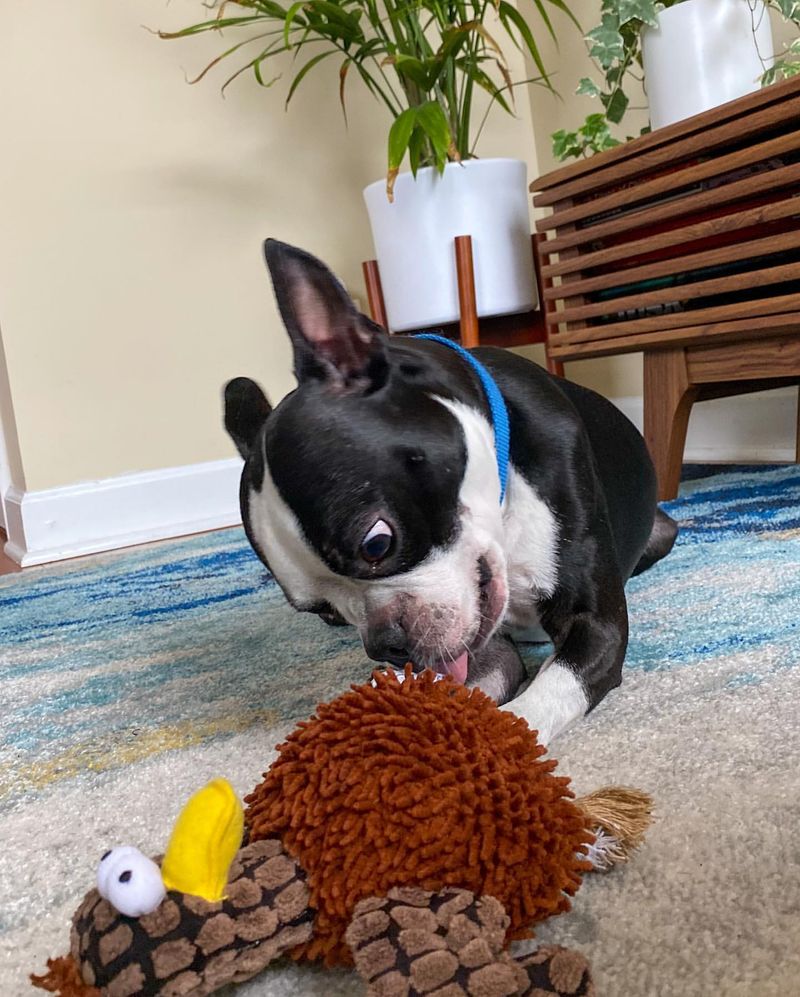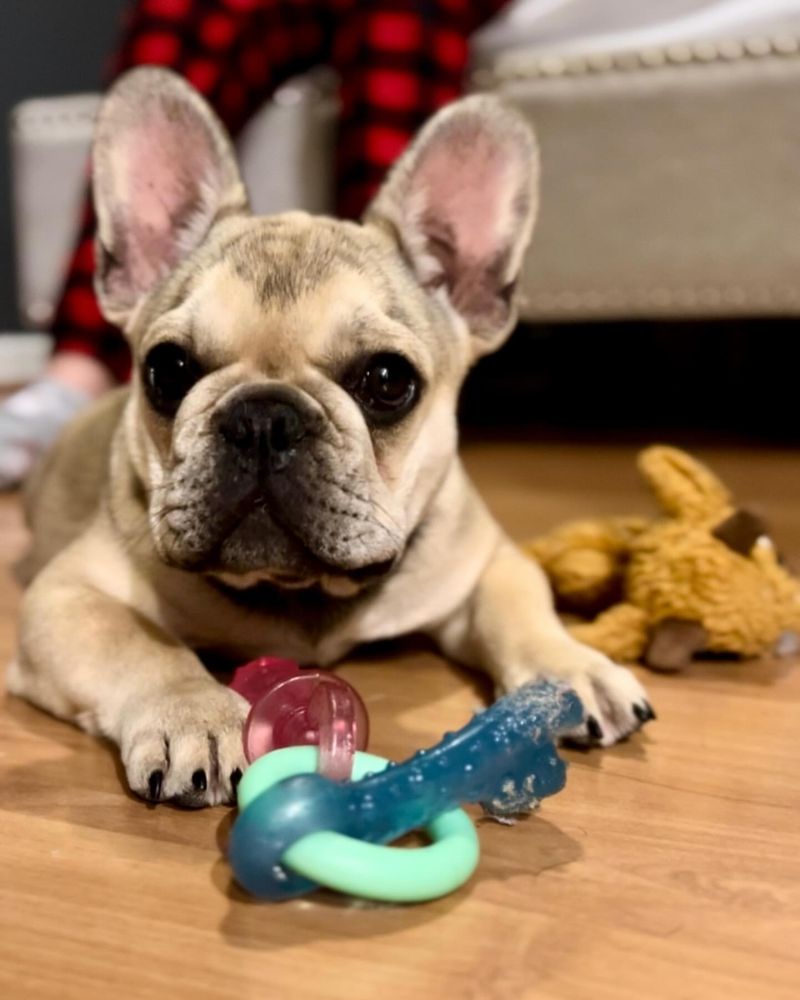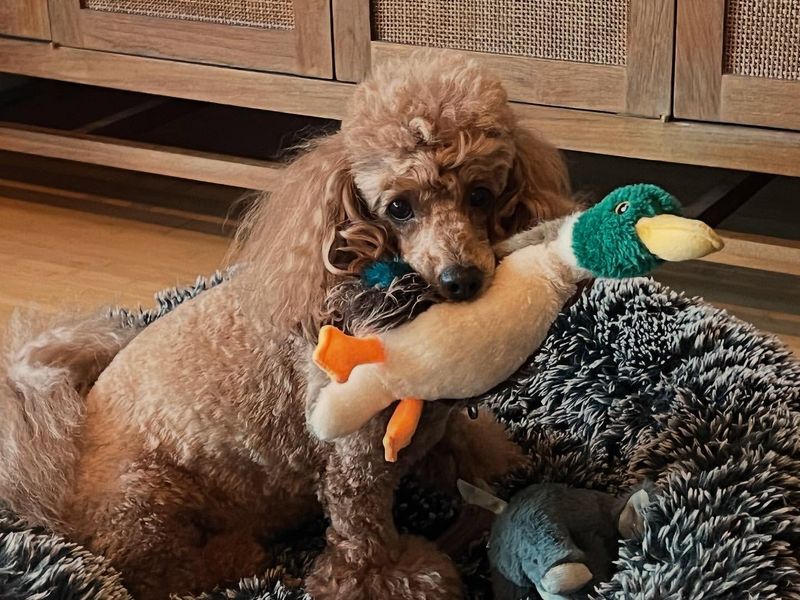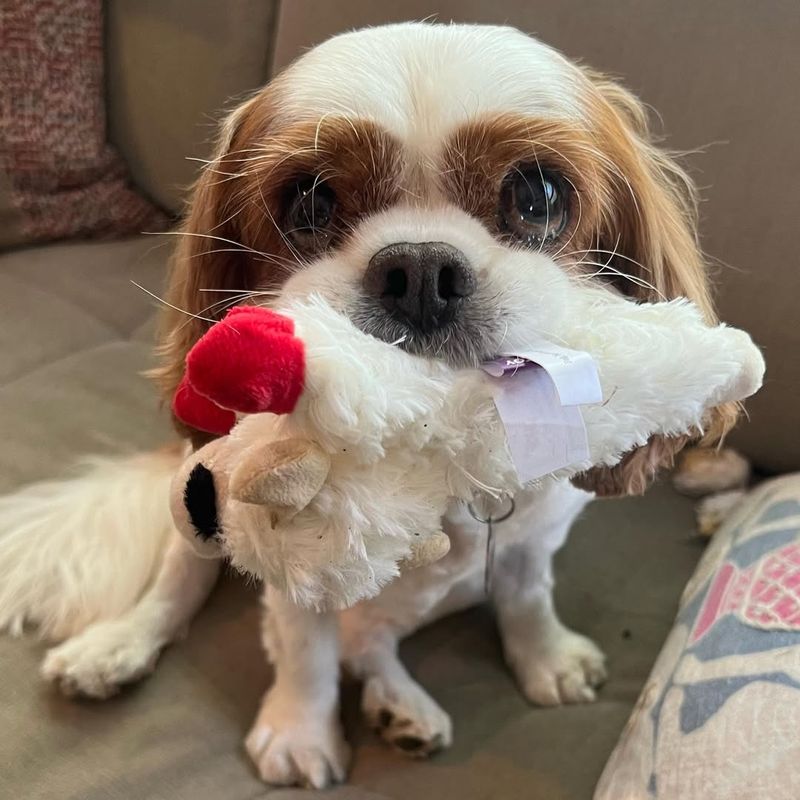If you’ve ever come home to find your favorite shoes in tatters, you know the struggles of having a dog that loves to chew. While some breeds are notorious for their relentless need to gnaw on everything in sight, others are more content to stick to their designated toys. Understanding which breeds have a propensity for destructive chewing and which do not can save your belongings and enhance your relationship with your furry friend.
Labrador Retriever
Labrador Retrievers are known for their friendly nature and intelligence. However, their love for chewing can be overwhelming. These dogs are playful and energetic, often needing plenty of stimulation.
Without appropriate toys, Labs might turn to furniture or shoes to satisfy their chewing urges. It’s crucial to provide durable toys that can withstand their powerful jaws.
Regular exercise and training are essential to keep their minds and bodies engaged. Engaging in games like fetch can also help in channeling their energy constructively.
Beagle
Beagles are curious and active dogs, driven by their strong sense of smell. This breed tends to explore the world with its mouth. If not supervised, they might chew on things they shouldn’t.
Beagles respond well to training, so early intervention is key to curbing destructive behavior. Offer a variety of toys to keep them entertained.
Interactive toys that challenge their intelligence are particularly beneficial. Regular walks and scent games can also help in managing their energy and reducing the urge to chew destructively.
Jack Russell Terrier
Energetic and spirited, Jack Russell Terriers are small dogs with a big personality. Their natural instincts drive them to chew and dig.
Providing a selection of chew toys can help redirect their need to gnaw. This breed thrives on physical activities and mental challenges.
Consistent training sessions and puzzle toys can keep their active minds occupied. Engaging in activities like agility training can also be effective in managing their energy levels and reducing destructive chewing.
Border Collie
Border Collies are highly intelligent and energetic dogs. Their need for mental engagement can lead to chewing if not satisfied.
They excel in obedience and agility training, which can help curb unwanted behaviors. Providing interactive toys that stimulate their minds is crucial.
Engaging them in herding activities or advanced training sessions can be beneficial. Ensuring they have a job to do will keep their chewing tendencies at bay.
Dachshund
Dachshunds, with their playful and curious nature, are often prone to chewing. Their long bodies and short legs make them unique, but also more likely to get into things.
These dogs require toys that are easy to carry and chew on. Supervision is important to prevent them from chewing on inappropriate items.
Training and socialization from an early age can help in managing chewing behaviors. Providing toys that satisfy their need to chew can keep them happy and avoid destructive habits.
Chihuahua
Despite their small size, Chihuahuas have a strong desire to chew. This breed is known for its alertness and spunky personality.
Offering chew toys suited to their small mouths is essential. They can be particularly fond of soft toys or rubber chews that are easy to manage.
Early training and socialization can help alleviate excessive chewing. Encouraging playtime and providing a variety of toys can keep their curious minds occupied and reduce destructive behavior.
Golden Retriever
Golden Retrievers are affectionate and friendly dogs, but they also have a penchant for chewing. Their playful nature requires constant engagement.
Supplying a range of durable toys can help satisfy their chewing needs. These dogs benefit from regular exercise and interactive play.
Games like fetch and tug-of-war can prevent boredom, reducing the likelihood of destructive chewing. Consistent training helps reinforce good behavior, making them well-rounded companions.
Boxer
Boxers are known for their strength and boundless energy. This breed often uses chewing as a way to release pent-up energy.
Providing sturdy toys can help manage this instinct. Boxers enjoy interactive play, which can serve as a good outlet for their energy.
Regular exercise and structured playtime are vital. Training sessions that challenge their minds can further help in minimizing destructive chewing behaviors.
Shih Tzu
Shih Tzu
The Shih Tzu is a small but energetic breed that adores its toys. Their playful nature makes them carry their favorite plush around the house, often treating them like tiny companions.
With their affectionate demeanor, these dogs often cuddle with their toys during nap times. The Shih Tzu’s love for toys is matched only by their love for their human family.
If you’re looking for a loving and playful pet, the Shih Tzu is a charming choice that brings joy with its constant companionship and playful antics.
Bulldog
Bulldog
Bulldogs may be known for their tough looks, but they have a soft spot for their chew toys. Their strong jaws and playful nature mean they spend hours gnawing on their favorite toys.
Despite their seemingly lazy disposition, Bulldogs are surprisingly enthusiastic during playtime. A durable toy can keep them entertained and content for hours.
This breed’s gentle and loving nature is complemented by its playful side, making Bulldogs wonderful companions for families.
Cocker Spaniel
Cocker Spaniels are lively dogs with a fondness for fetching games. Their energetic personalities are perfectly suited for toys like tennis balls, which they love to chase and retrieve.
These dogs are not just about play; they also form a special attachment to their toys, often seen carrying them around with pride. Their affectionate nature means they enjoy interactive play with their human companions.
If you want a playful yet gentle pet, the Cocker Spaniel is an excellent choice with its love for both fun and family.
Boston Terrier
The Boston Terrier, known for its friendly and lively disposition, is a breed that loves toys as much as it loves people. They are often seen playing with rubber balls, showcasing their energetic nature.
These dogs are great at engaging their owners in a game of fetch or simply enjoying solo play with their toys. Their enthusiasm during playtime is infectious, making them a delightful addition to any family.
For a companion that brings both energy and affection, the Boston Terrier stands out with its playful spirit and love for toys.
French Bulldog
French Bulldogs have a playful yet relaxed approach to life, and they have a particular affection for squeaky toys. Their compact size and lively personality make them perfect for indoor play.
These dogs are known for their amusing antics, often seen prancing around with their favorite toy. Their love for toys is matched by their need for companionship, making them excellent pets for urban living.
For those looking for a small but entertaining pet, the French Bulldog is a wonderful choice with its love of fun and friendly nature.
Poodle
Poodles are not only one of the most intelligent breeds but also have a notable attachment to their toys. These dogs are highly trainable and enjoy games that challenge their intellect.
Poodles often develop a fondness for particular toys, tending to carry them from room to room. Their playful antics and ability to adapt to various play styles make them a joy to be around. This breed’s love for toys is enhanced by their need for mental stimulation, ensuring they remain happy and entertained.
Cavalier King Charles Spaniel
Cavalier King Charles Spaniels are known for their affectionate and gentle nature. Their love for toys often reflects their need for comfort and companionship.
These spaniels enjoy soft toys, often treating them as little friends. Their playful yet calm demeanor makes them excellent pets for families and individuals alike. Cavalier King Charles Spaniels find joy in carrying their toys around, providing them with both emotional and physical comfort. Their attachment to toys is a heartwarming trait that adds to their charm.
